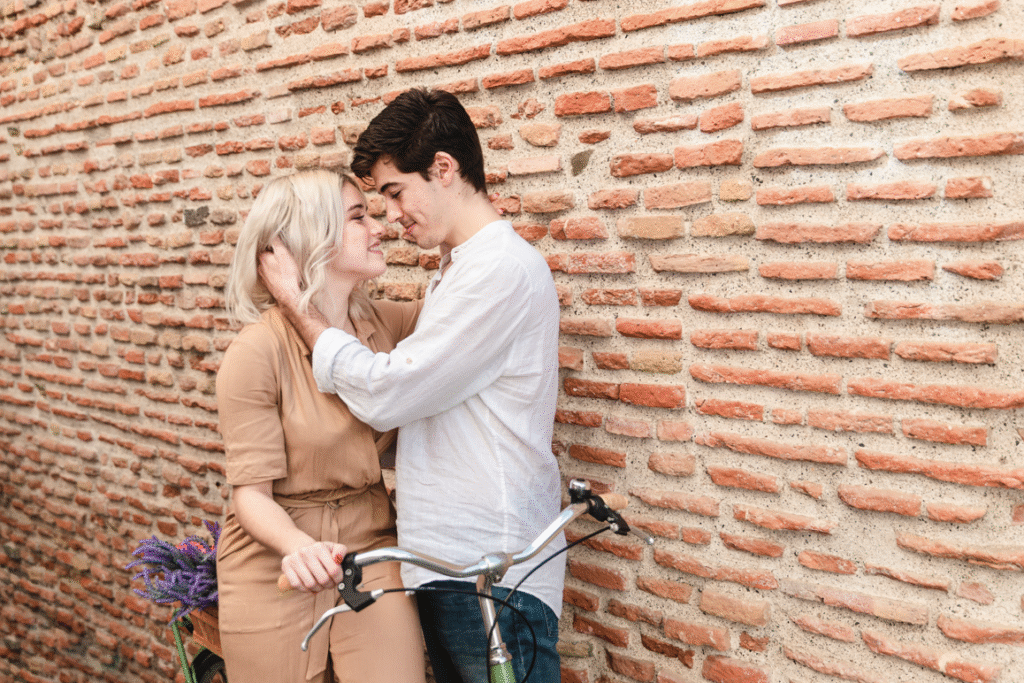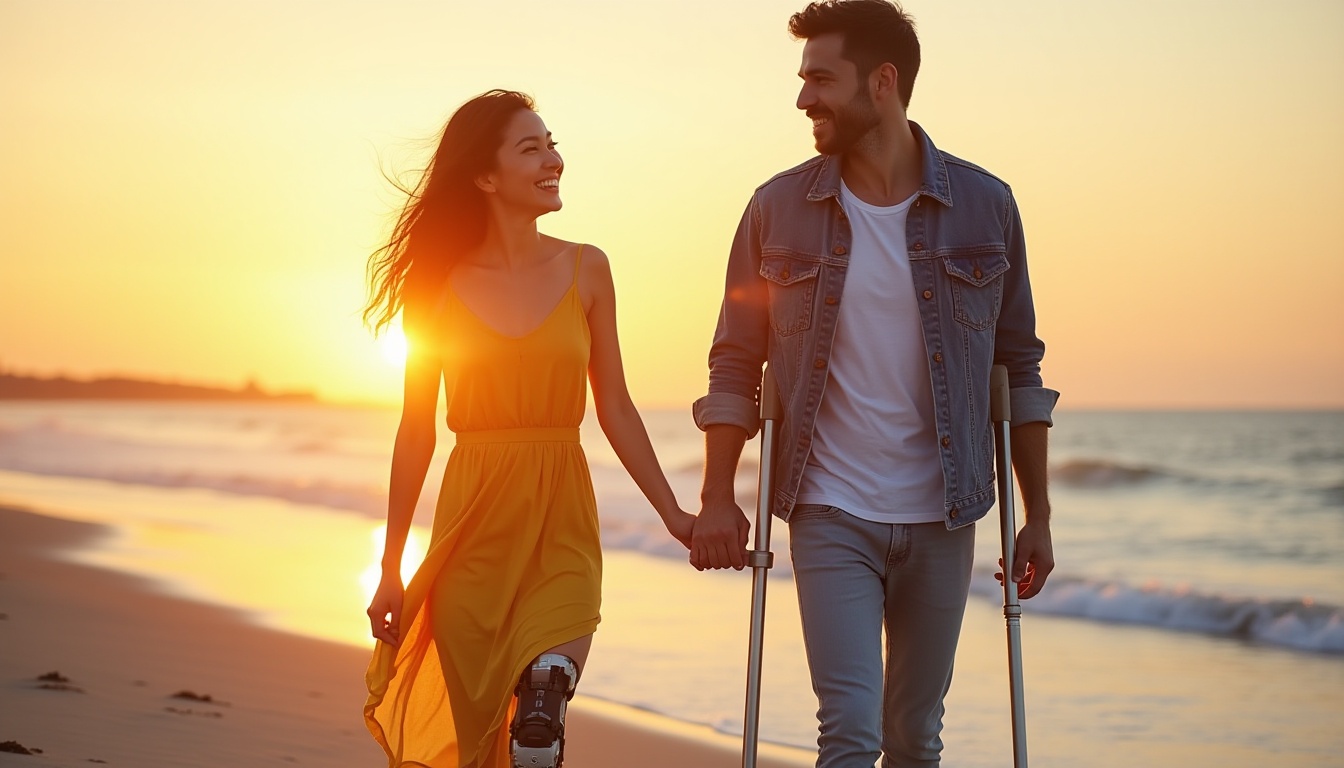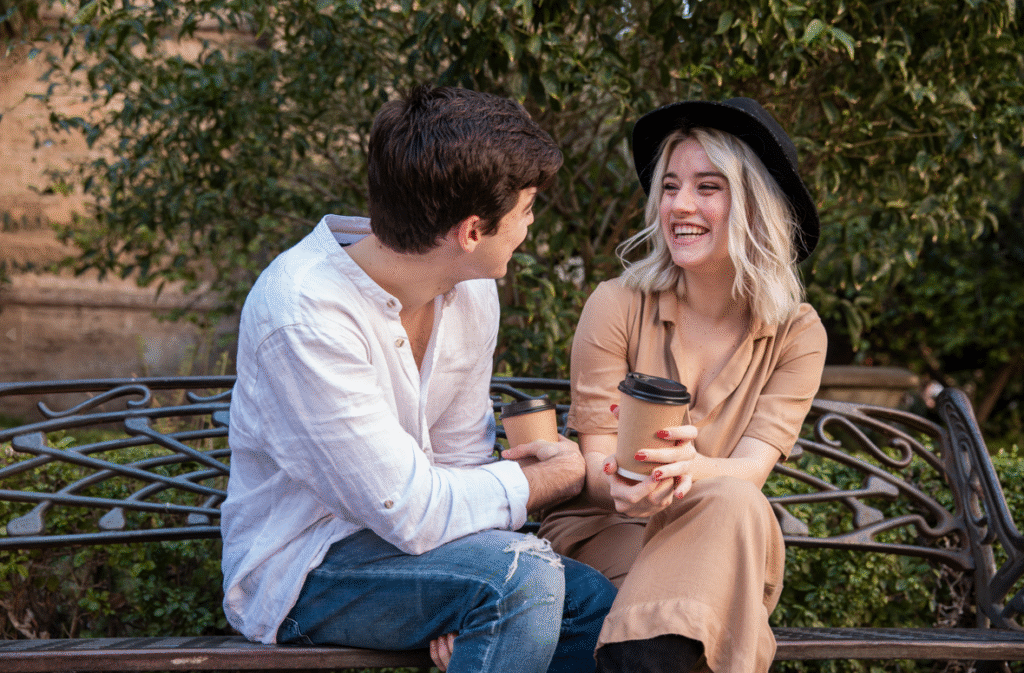Introduction
Dating after disability injury can feel like starting over in an unfamiliar world. Whether your disability comes from an accident, a medical condition, or a recovery process, reentering the dating scene often brings uncertainty. Many people worry about rejection, social stigma, or when to disclose their situation. Yet, love after disability is not only possible—it can be deeply fulfilling and empowering.
Thanks to more inclusive dating platforms, growing awareness, and inspiring success stories, dating with injury recovery is becoming a hopeful and achievable journey. In this guide, we’ll explore challenges, tips, and platforms to help you rebuild confidence and find meaningful connections. For further resources, you may also explore [Top Disability Dating Apps 2025 – Inclusive Dating in the US]

Understanding Dating After a Disability Injury
Emotional and Psychological Challenges
After an accident, many people experience self-doubt and fear. You may wonder if you’re “dateable” or worry about rejection. Society’s stereotypes—like assuming disabled people are less independent—can intensify these feelings. Internalized stigma often creates unnecessary barriers to dating after accident recovery.
Why Dating Matters in Recovery
Romantic and social relationships help rebuild identity. Engaging in new connections allows you to challenge negative assumptions, gain emotional support, and rediscover joy. In this way, dating after disability injury is not just about romance—it’s also a step toward confidence and healing.
Building Self-Confidence Before Dating
Embrace Your New Identity
Recovery often reshapes how you view yourself. Instead of focusing on limitations, recognize strengths gained—resilience, adaptability, and courage. Defining yourself beyond your disability makes love after disability more natural and authentic.
Strengthen Mental Health and Self-Esteem
Therapies like CBT, self-affirmation practices, or peer counseling can help. Celebrate small wins—like attending a meetup or joining an online group. Each step builds self-worth, which directly supports dating with injury recovery.
Practice Social Interactions in Safe Spaces
Start in supportive communities such as online forums, disability advocacy groups, or local peer networks. These low-pressure environments help you practice social skills and prepare for real-world dating experiences.
Practical Tips for Dating After Disability Injury
Show Your Authentic Self in Dating Profiles
Your dating profile should reflect your personality, hobbies, and lifestyle. Use photos from everyday life—whether cooking, traveling, or working. Keep the tone confident and positive: “A curious traveler who loves photography—my wheelchair never stops me from exploring new places.”
When to Disclose Your Disability
One of the most common concerns in dating after disability injury is disclosure. There’s no single rule—it depends on comfort and context. Some mention it in their profile, while others wait until trust is built. For more detailed guidance, check out [How to Disclose Disability When Dating].
First Date Planning and Safety
Choose accessible public locations, share your plans with a trusted friend, and keep the atmosphere relaxed. Lighthearted conversations—about travel, music, or hobbies—help build connection. Always prioritize comfort and safety.
Best Platforms for Disabled Dating
Finding the right platform is key to success in dating with injury recovery. Below are some options:
Bridgesmate
A disability-focused platform built to support genuine connections for people with disabilities and those recovering from injuries.
Best for: Users look for a safe, supportive community.
PositiveSingles
Originally created for people with health challenges, it now offers dating, peer support, forums, and blogs.
Best for: Those looking for both romance and a broader support system.
Mainstream Apps with Accessibility Features (Tinder, Hinge, etc.)
Not disability-specific, but inclusive tools—such as customizable profiles—make them accessible to more users.
Best for: People comfortable navigating larger dating pools.
➡️ For more details, see Top Disability Dating Apps 2025 – Inclusive Dating in the US
Success Stories & Inspiration
- Sarah’s Journey: After a spinal cord injury, Sarah joined Bridgesmate. She found someone who valued her humor and resilience, proving that love after disability is about authenticity.
- James’ Experience: An LGBT man recovering from a sports injury found community and dating opportunities on PositiveSingles. His story highlights the importance of support networks and inclusive spaces like LGBT Disabled Dating Communities: Find Inclusive Love in 2025
These stories prove that dating after accident recovery is not only possible but can also lead to fulfilling relationships and lifelong connections.
Balancing Romance and Community Support
Dating is about more than just romance—it’s also about building a circle of emotional support. Online groups, advocacy communities, and peer forums provide advice, encouragement, and friendship. They act as stepping stones toward healthy relationships and reinforce confidence.
Conclusion
Dating after disability injury is both a challenge and an opportunity. By embracing your new identity, rebuilding self-confidence, and using inclusive platforms, you can create meaningful relationships.
Key reminders:
- Embrace yourself fully.
- Build confidence through small wins.
- Use accessible and supportive platforms.
- Balance romance with community support.
your journey is not defined by your injury. It’s defined by your courage to connect, love, and thrive again.

